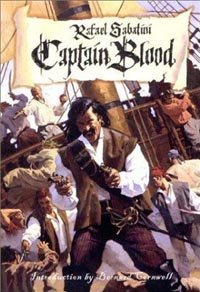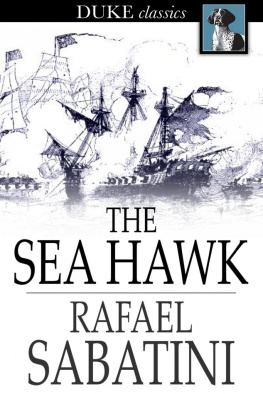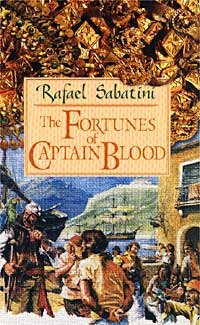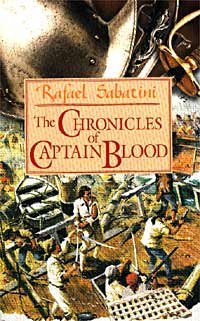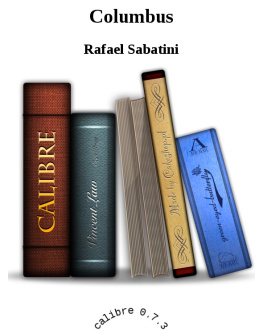Rafael Sabatini - The Snare
Here you can read online Rafael Sabatini - The Snare full text of the book (entire story) in english for free. Download pdf and epub, get meaning, cover and reviews about this ebook. year: 2001, genre: Adventure. Description of the work, (preface) as well as reviews are available. Best literature library LitArk.com created for fans of good reading and offers a wide selection of genres:
Romance novel
Science fiction
Adventure
Detective
Science
History
Home and family
Prose
Art
Politics
Computer
Non-fiction
Religion
Business
Children
Humor
Choose a favorite category and find really read worthwhile books. Enjoy immersion in the world of imagination, feel the emotions of the characters or learn something new for yourself, make an fascinating discovery.

- Book:The Snare
- Author:
- Genre:
- Year:2001
- Rating:3 / 5
- Favourites:Add to favourites
- Your mark:
- 60
- 1
- 2
- 3
- 4
- 5
The Snare: summary, description and annotation
We offer to read an annotation, description, summary or preface (depends on what the author of the book "The Snare" wrote himself). If you haven't found the necessary information about the book — write in the comments, we will try to find it.
The Snare — read online for free the complete book (whole text) full work
Below is the text of the book, divided by pages. System saving the place of the last page read, allows you to conveniently read the book "The Snare" online for free, without having to search again every time where you left off. Put a bookmark, and you can go to the page where you finished reading at any time.
Font size:
Interval:
Bookmark:
THE SNARE
By Rafael Sabatini
CHAPTER I. THE AFFAIR AT TAVORA
It is established beyond doubt that Mr. Butler was drunk at the time. This rests upon the evidence of Sergeant Flanagan and the troopers who accompanied him, and it rests upon Mr. Butler's own word, as we shall see. And let me add here and now that however wild and irresponsible a rascal he may have been, yet by his own lights he was a man of honour, incapable of falsehood, even though it were calculated to save his skin. I do not deny that Sir Thomas Picton has described him as a "thieving blackguard." But I am sure that this was merely the downright, rather extravagant manner, of censure peculiar to that distinguished general, and that those who have taken the expression at its purely literal value have been lacking at once in charity and in knowledge of the caustic, uncompromising terms of speech of General Picton whom Lord Wellington, you will remember, called a rough, foulmouthed devil.
In further extenuation it may truthfully be urged that the whole hideous and odious affair was the result of a misapprehension; although I cannot go so far as one of Lieutenant Butler's apologists and accept the view that he was the victim of a deliberate plot on the part of his too-genial host at Regoa. That is a misconception easily explained. This host's name happened to be Souza, and the apologist in question has very rashly leapt at the conclusion that he was a member of that notoriously intriguing family, of which the chief members were the Principal Souza, of the Council of Regency at Lisbon, and the Chevalier Souza, Portuguese minister to the Court of St. James's. Unacquainted with Portugal, our apologist was evidently in ignorance of the fact that the name of Souza is almost as common in that country as the name of Smith in this. He may also have been misled by the fact that Principal Souza did not neglect to make the utmost capital out of the affair, thereby increasing the difficulties with which Lord Wellington was already contending as a result of incompetence and deliberate malice on the part both of the ministry at home and of the administration in Lisbon.
Indeed, but for these factors it is unlikely that the affair could ever have taken place at all. If there had been more energy on the part of Mr. Perceval and the members of the Cabinet, if there had been less bad faith and self-seeking on the part of the Opposition, Lord Wellington's campaign would not have been starved as it was; and if there had been less bad faith and self-seeking of an even more stupid and flagrant kind on the part of the Portuguese Council of Regency, the British Expeditionary Force would not have been left without the stipulated supplies and otherwise hindered at every step.
Lord Wellington might have experienced the mental agony of Sir John Moore under similar circumstances fifteen months earlier. That he did suffer, and was to suffer yet more, his correspondence shows. But his iron will prevented that suffering from disturbing the equanimity of his mind. The Council of Regency, in its concern to court popularity with the aristocracy of Portugal, might balk his measures by its deliberate supineness; echoes might reach him of the voices at St. Stephen's that loudly dubbed his dispositions rash, presumptuous and silly; catch-halfpenny journalists at home and men of the stamp of Lord Grey might exploit their abysmal military ignorance in reckless criticism and censure of his operations; he knew what a passionate storm of anger and denunciation had arisen from the Opposition when he had been raised to the peerage some months earlier, after the glorious victory of Talavera, and how, that victory notwithstanding, it had been proclaimed that his conduct of the campaign was so incompetent as to deserve, not reward, but punishment; and he was aware of the growing unpopularity of the war in England, knew that the Governmentignorant of what he was so laboriously preparingwas chafing at his inactivity of the past few months, so that a member of the Cabinet wrote to him exasperatedly, incredibly and fatuously"for God's sake do somethinganything so that blood be spilt."
A heart less stout might have been broken, a genius less mighty stifled in this evil tangle of stupidity, incompetence and malignity that sprang up and flourished about him on every hand. A man less single-minded must have succumbed to exasperation, thrown up his command and taken ship for home, inviting some of his innumerable critics to take his place at the head of the troops, and give free rein to the military genius that inspired their critical dissertations. Wellington, however, has been rightly termed of iron, and never did he show himself more of iron than in those trying days of 1810. Stern, but with a passionless sternness, he pursued his way towards the goal he had set himself, allowing no criticism, no censure, no invective so much as to give him pause in his majestic progress.
Unfortunately the lofty calm of the Commander-in-Chief was not shared by his lieutenants. The Light Division was quartered along the River Agueda, watching the Spanish frontier, beyond which Marshal Ney was demonstrating against Ciudad Rodrigo, and for lack of funds its fiery-tempered commander, Sir Robert Craufurd, found himself at last unable to feed his troops. Exasperated by these circumstances, Sir Robert was betrayed into an act of rashness. He seized some church plate at Pinhel that he might convert it into rations. It was an act which, considering the general state of public feeling in the country at the time, might have had the gravest consequences, and Sir Robert was subsequently forced to do penance and afford redress. That, however, is another story. I but mention the incident here because the affair of Tavora with which I am concerned may be taken to have arisen directly out of it, and Sir Robert's behaviour may be construed as setting an example and thus as affording yet another extenuation of Lieutenant Butler's offence.
Our lieutenant was sent upon a foraging expedition into the valley of the Upper Douro, at the head of a half-troop of the 8th Dragoons, two squadrons of which were attached at the time to the Light Division. To be more precise, he was to purchase and bring into Pinhel a hundred head of cattle, intended some for slaughter and some for draught. His instructions were to proceed as far as Regoa and there report himself to one Bartholomew Bearsley, a prosperous and influential English wine-grower, whose father had acquired considerable vineyards in the Douro. He was reminded of the almost hostile disposition of the peasantry in certain districts; warned to handle them with tact and to suffer no straggling on the part of his troopers; and advised to place himself in the hands of Mr. Bearsley for all that related to the purchase of the cattle. Let it be admitted at once that had Sir Robert Craufurd been acquainted with Mr. Butler's feather-brained, irresponsible nature, he would have selected any officer rather than our lieutenant to command that expedition. But the Irish Dragoons had only lately come to Pinhel, and the general himself was not immediately concerned.
Lieutenant Butler set out on a blustering day of March at the head of his troopers, accompanied by Cornet O'Rourke and two sergeants, and at Pesqueira he was further reinforced by a Portuguese guide. They found quarters that night at Ervedoza, and early on the morrow they were in the saddle again, riding along the heights above the Cachao da Valleria, through which the yellow, swollen river swirled and foamed along its rocky way. The prospect, formidable even in the full bloom of fruitful and luxuriant summer, was forbidding and menacing now as some imagined gorge of the nether regions. The towering granite heights across the turgid stream were shrouded in mist and sweeping rain, and from the leaden heavens overhead the downpour was of a sullen and merciless steadiness, starting at every step a miniature torrent to go swell the roaring waters in the gorge, and drenching the troop alike in body and in spirit. Ahead, swathed to the chin in his blue cavalry cloak, the water streaming from his leather helmet, rode Lieutenant Butler, cursing the weather, the country; the Light Division, and everything else that occurred to him as contributing to his present discomfort. Beside him, astride of a mule, rode the Portuguese guide in a caped cloak of thatched straw, which made him look for all the world like a bottle of his native wine in its straw sheath. Conversation between the two was out of the question, for the guide spoke no English and the lieutenant's knowledge of Portuguese was very far from conversational.
Font size:
Interval:
Bookmark:
Similar books «The Snare»
Look at similar books to The Snare. We have selected literature similar in name and meaning in the hope of providing readers with more options to find new, interesting, not yet read works.
Discussion, reviews of the book The Snare and just readers' own opinions. Leave your comments, write what you think about the work, its meaning or the main characters. Specify what exactly you liked and what you didn't like, and why you think so.

